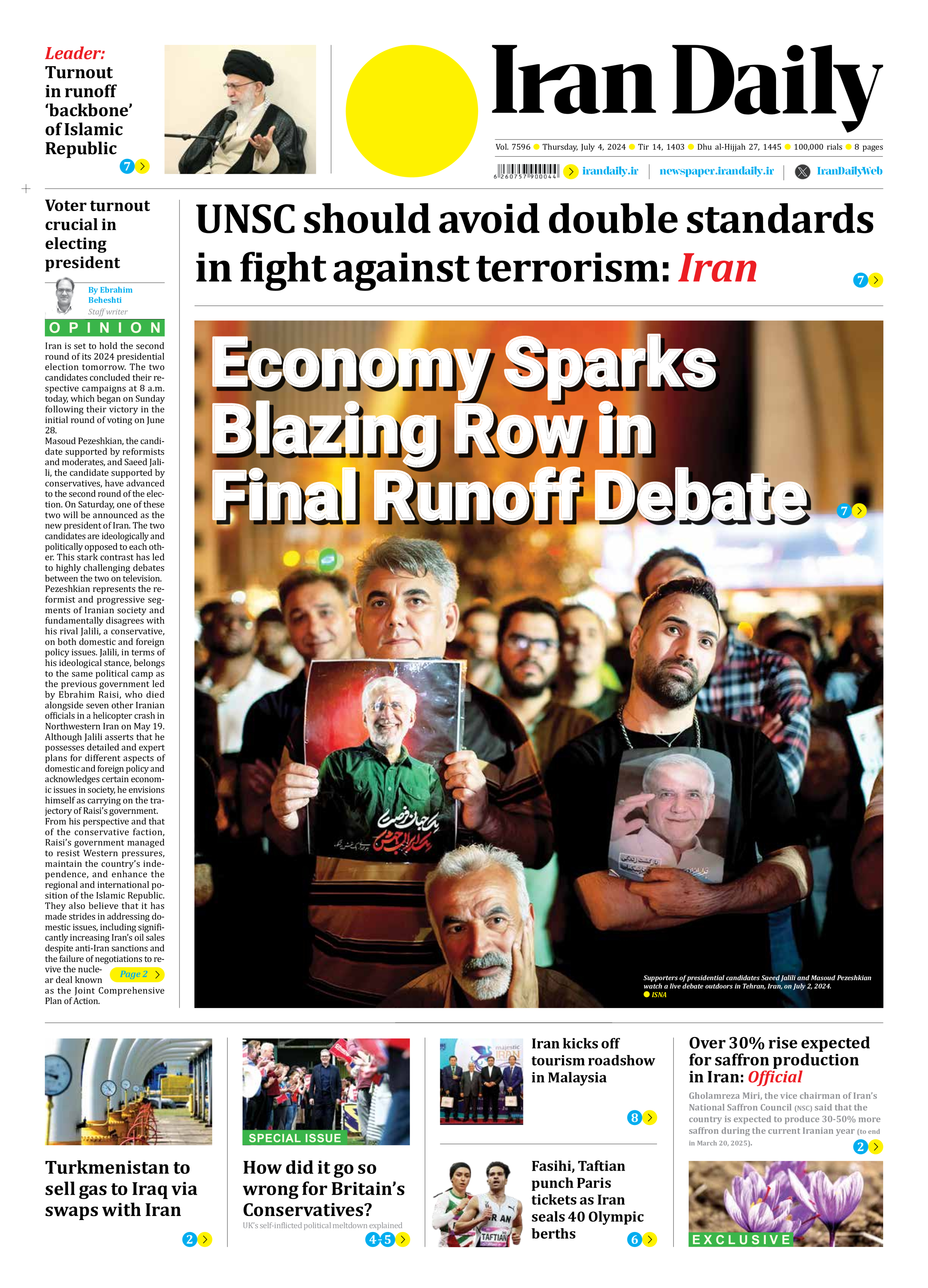
Voter turnout crucial in electing president
By Ebrahim Beheshti
Staff writer
Iran is set to hold the second round of its 2024 presidential election tomorrow. The two candidates concluded their respective campaigns at 8 a.m. today, which began on Sunday following their victory in the initial round of voting on June 28.
Masoud Pezeshkian, the candidate supported by reformists and moderates, and Saeed Jalili, the candidate supported by conservatives, have advanced to the second round of the election. On Saturday, one of these two will be announced as the new president of Iran. The two candidates are ideologically and politically opposed to each other. This stark contrast has led to highly challenging debates between the two on television.
Pezeshkian represents the reformist and progressive segments of Iranian society and fundamentally disagrees with his rival Jalili, a conservative, on both domestic and foreign policy issues. Jalili, in terms of his ideological stance, belongs to the same political camp as the previous government led by Ebrahim Raisi, who died alongside seven other Iranian officials in a helicopter crash in Northwestern Iran on May 19. Although Jalili asserts that he possesses detailed and expert plans for different aspects of domestic and foreign policy and acknowledges certain economic issues in society, he envisions himself as carrying on the trajectory of Raisi’s government.
From his perspective and that of the conservative faction, Raisi’s government managed to resist Western pressures, maintain the country’s independence, and enhance the regional and international position of the Islamic Republic. They also believe that it has made strides in addressing domestic issues, including significantly increasing Iran’s oil sales despite anti-Iran sanctions and the failure of negotiations to revive the nuclear deal known as the Joint Comprehensive Plan of Action.
Page 2







